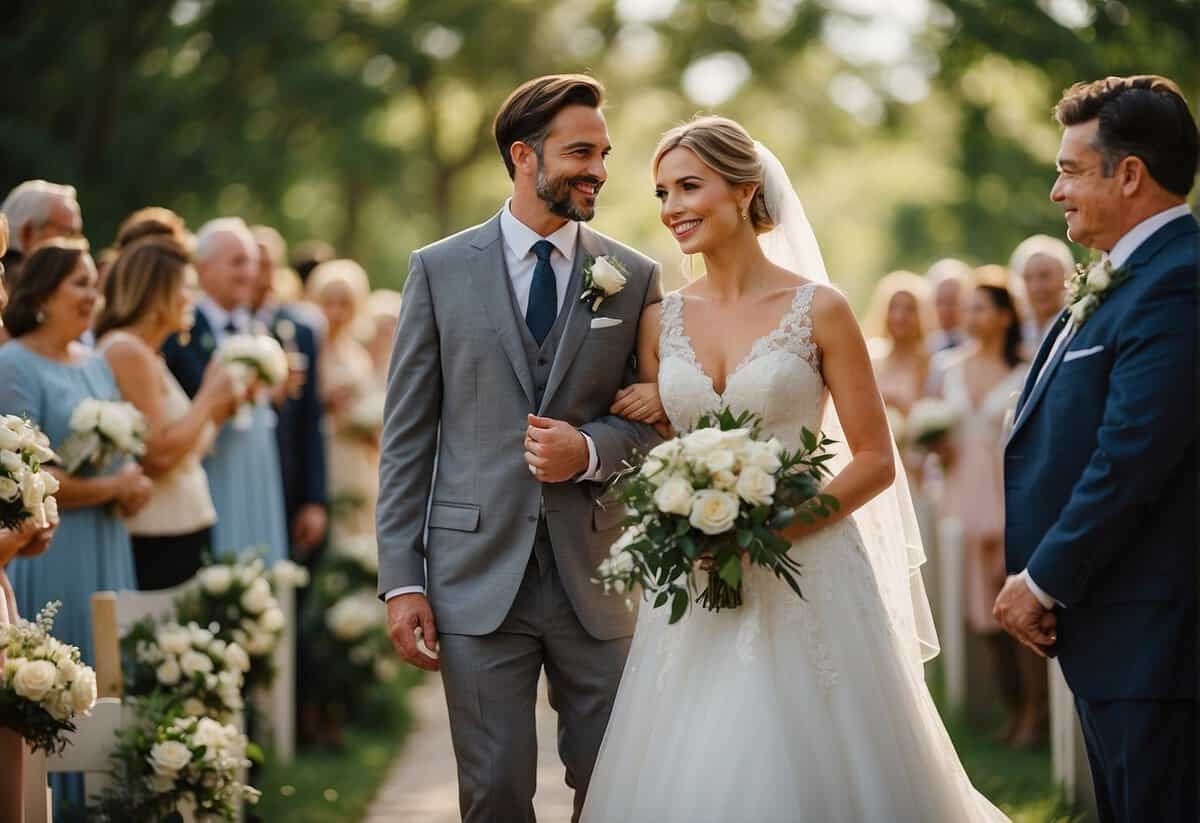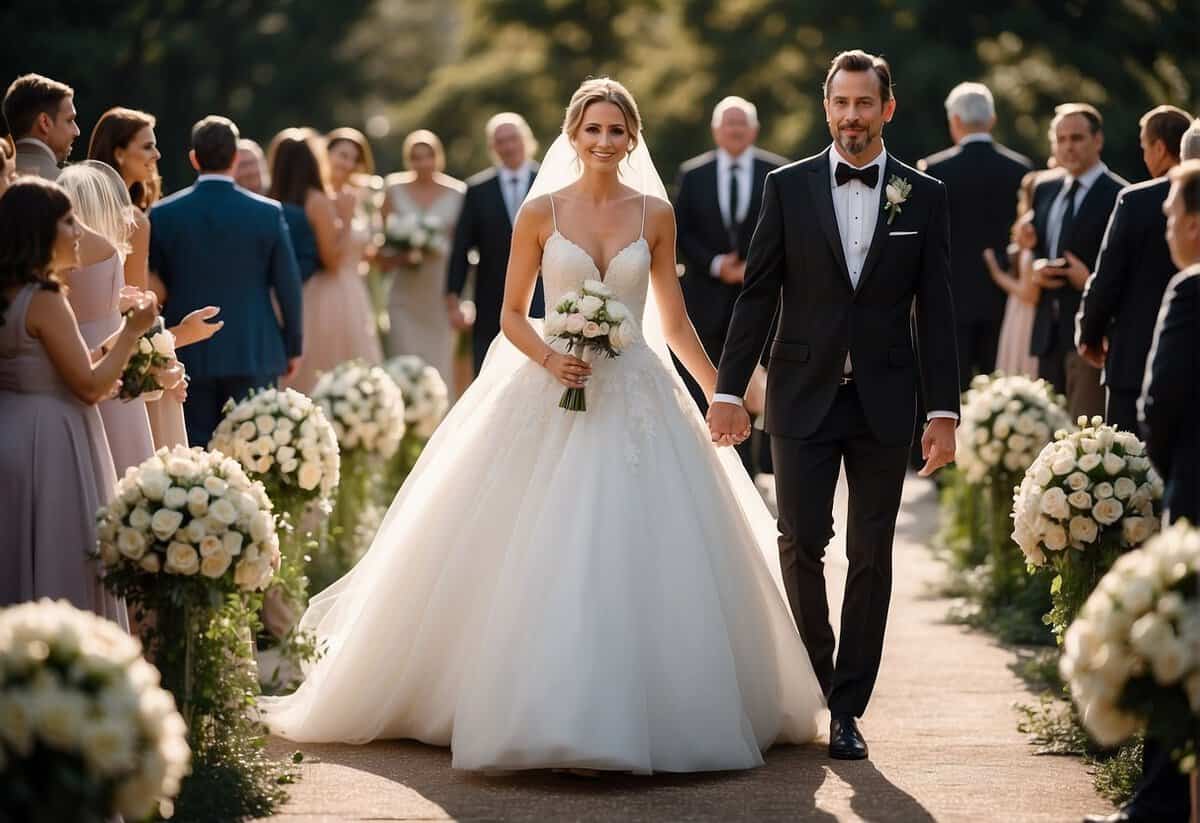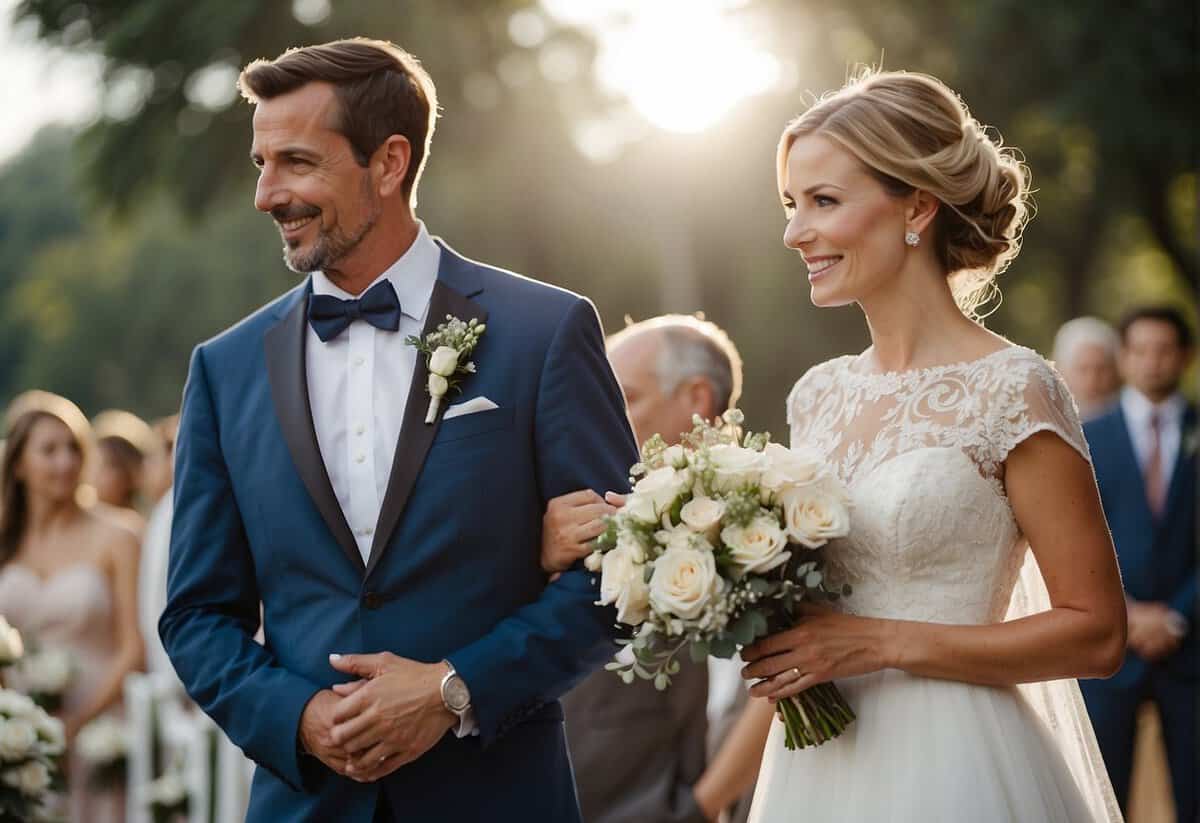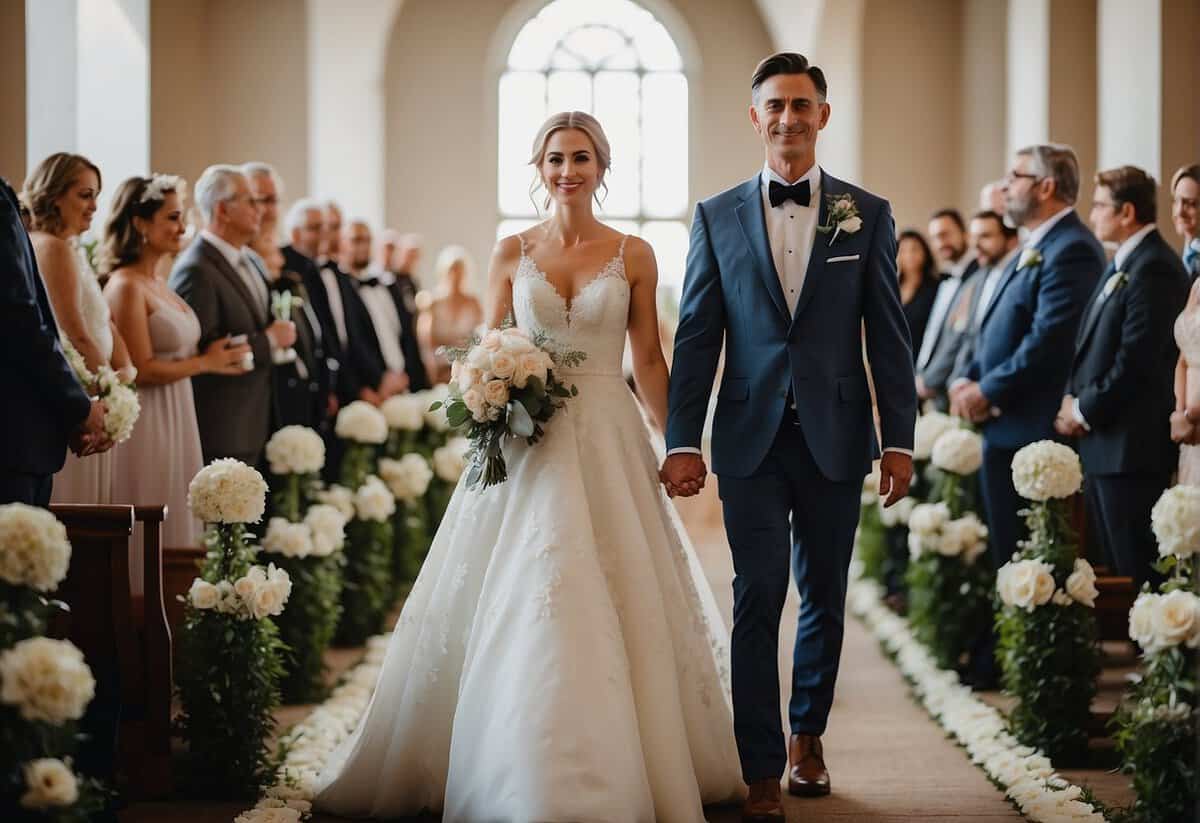Can Both Parents Walk the Bride Down the Aisle? Embracing a Modern Tradition
Deciding how to make that memorable walk down the aisle on your wedding day involves not only personal preferences but also the consideration of traditions that have long been part of matrimonial ceremonies. Historically, it has been customary for the father of the bride to walk his daughter down the aisle, symbolizing the passing of care from father to husband. However, times have evolved, and so have wedding conventions. You may find yourself pondering whether both of your parents can accompany you on this significant journey.

Embracing more inclusive practices, many modern weddings now uphold the idea that love and support can be represented by having both parents walk alongside the bride. This approach to walking down the aisle can infuse your ceremony with a contemporary feel and symbolize the equal importance of both the bride’s parents in her life. In essence, this practice reflects the ever-changing dynamics of familial roles in today’s society and personalizes the wedding to better represent individual family experiences.
Key Takeaways
- Traditional roles are evolving to allow both parents to join the bride in her walk down the aisle.
- The choice of who walks the bride down the aisle reflects modern views on familial roles and dynamics.
- Personalization of the wedding experience is a key aspect of incorporating both parents in the aisle walk.
Exploring Traditions and Changes

Wedding ceremonies are rich with tradition, yet they continuously evolve. As you plan your wedding, understanding how these customs started and how they’re changing can help you decide what fits your special day.
Evolution of Wedding Traditions
Wedding traditions have a deep-rooted history in culture and customs, often reflective of the family structure and societal norms of their times. Historically, it was commonplace for the bride’s father to walk her down the aisle, symbolizing a transfer of guardianship. However, this tradition has seen a significant shift. It’s becoming increasingly popular to see both parents walking with the bride, a practice that’s traditional in Jewish ceremonies. The inclusion of both parents is a way to honor their support and love, symbolizing unity and a modern understanding of family roles.
Role of Family in Wedding Ceremonies
In wedding ceremonies today, the role of family has expanded beyond traditional norms. The act of both parents accompanying the bride down the aisle can demonstrate the equal importance of each parent in the bride’s life and the collective journey leading up to this day. This practice can be a powerful representation of the bride’s upbringing and bond with her family, embracing a broader, more inclusive representation of wedding tradition. Making this choice can also reflect individual family dynamics and personal preferences, ensuring that your ceremony resonates with your unique cultural and familial background.
Roles and Dynamics in Modern Weddings

In modern weddings, the participation of both parents in ceremonial roles reflects evolving family dynamics and personal preferences. You may find various customs being adapted or reinterpreted to honor the unique relationships within each family.
Honoring the Parents
Traditionally, the father of the bride has been the one to walk her down the aisle, symbolizing the passing of care from one family to another. However, it’s becoming more common for both parents to share this honor as a way of acknowledging the role each has played in the bride’s life. This inclusive approach allows for a reflection of unity and support from the family as a whole.
Parental Roles Beyond the Aisle
Beyond the walk down the aisle, parents can fulfill other important roles during the wedding. Roles can include participating in unity ceremonies, giving speeches, or playing a part in reception traditions. These roles provide opportunities for both the mother and father to be actively involved and commonly respect their personal preferences and the overall family dynamics.
The evolving roles in weddings are a testament to how tradition can adapt to the values and desires of each unique family scenario.
Walking Down the Aisle

In your wedding, the way you choose to walk down the aisle can be a uniquely meaningful aspect of the ceremony. Whether it’s a solo walk, being accompanied by one parent, or both parents by your side, this special moment forms a significant part of the procession.
Both Parents Accompanying the Bride
It’s becoming more common for both parents to walk with you down the aisle. This practice not only symbolizes unity but also can offer support and comfort to you on your way to the altar. By having both your mother and father with you, it reflects the collective journey and the shared love that has led to this significant day. Walking with both parents can be a particularly meaningful gesture that highlights family unity. In traditions like the Jewish wedding ceremony, for example, both parents accompany the bride and groom down the aisle, emphasizing equality and combined support.
Significance of the Processional Walk
The processional walk is more than just a formality; it’s a special moment that marks the transition from single life to married life. As you walk towards your future partner, each step is filled with emotion and signifies the start of a new chapter. If you feel more comfortable sharing this intimate moment by having both your parents beside you, know that it can create a powerful memory. This act is not just ceremonial but is a public expression of the family bonds that have shaped who you are. Remember, this is your day, and the way you choose to make your procession should reflect what feels most meaningful to you as you approach your partner waiting at the altar.
Personalizing the Wedding Experience

When planning your wedding, infusing the ceremony with personal touches not only reinforces your unique identity as a couple but also honors the love and support that’s led to this significant new chapter in your life.
Personal Touches to Celebrate Relationships
Your wedding day is a celebration of partnership and the relationships that have shaped you. Consider choosing a ceremonial act that has personal significance, for example:
- Readings: Select passages from literature or poems that resonate with your journey.
- Music: Incorporate songs that hold special meaning for your relationship.
Emotional Considerations and Inclusivity
Decisions about your wedding can reflect not only your independence and identity as a couple but also the inclusivity of your family structure:
- Who walks you down the aisle?: Walking down the aisle with both parents can symbolize the support from all sides of your family.
- Vows: Craft vows that are indicative of your emotional bond and your future together.
Frequently Asked Questions

When it comes to your big day, you may have questions about the traditions and possibilities surrounding who can walk you down the aisle. Let’s explore some common inquiries about incorporating both parents in this cherished moment.
Is it customary for both the mother and father to accompany the bride during the aisle procession?
Traditionally, it is the father who walks the bride down the aisle. However, modern weddings often see both parents accompanying the bride, providing a way to honor them both.
What are the alternatives if the bride wishes to have two people escort her down the aisle?
There are no hard and fast rules. Alternatives include having both parents, a stepparent, a grandparent, or even a close friend or sibling accompany you. It’s all about personal preference.
How can a bride involve both parents in the wedding ceremony, especially during the walk down the aisle?
Involving both parents can be deeply meaningful. It can be as simple as having each parent take an arm and walk with you side by side, mirroring some traditional Jewish customs.
Who else, aside from the father, can traditionally escort the bride to the altar if desired?
Traditionally, the father is the escort to the altar but today this role can be filled by anyone significant to you, including your mother, a sibling, or even an influential friend.
In what ways can a bride honor her decision to walk down the aisle with both parents?
To honor your decision, think about ways to make it personal, like a special mention in the program or a unique part of your walk down the aisle that showcases the choice.
What is the significance behind the bride’s choice of the aisle companion or companions?
The choice of aisle companions often reflects the unique relationships you share. It’s a deeply personal decision that can express gratitude and love for those who have supported you throughout life.
